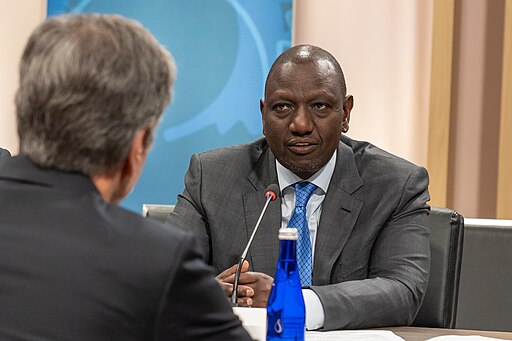President William Ruto declined to assent on Wednesday to the contentious Finance Bill 2024, sending it back to the National Assembly for reconsideration. This decision came amid ongoing protests led by Kenya’s Gen Z population voicing strong opposition to the bill.
According to President Ruto:
Taking into consideration the widespread expression of dissatisfaction by members of the public on the contents of the Finance Bill, 2024… in exercise of the powers conferred to me by Article 115(1)(b) of the Constitution and having reservations of the content of the bill in its entirety, I decline to assent to the Finance Bill, 2024 and refer the Bill for reconsideration by the National Assembly with the recommendation for the deletion of all the clauses thereof
Protests against the Finance Bill began on June 18th, with young people opposing provisions such as taxes on imported sanitary pads and diapers, taxes on cancer treatment, and an exemption for the Kenya Revenue Authority from the Data Protection Act, which would allow unrestricted access to personal data. A proposed 16% tax on bread was also included but later removed via subsequent amendments due to increased public outcry.
President Ruto’s announcement followed reports of extrajudicial abductions of protestors, including law students, the use of excessive force to disperse protestors and killings during protests. The president acknowledged six deaths, but human rights organizations report a significantly higher number. Both the Law Society of Kenya (LSK) and the UN have condemned the excessive force and killings by police.
The situation is further complicated by the Githurai massacre, where the government’s General Service Unit (GSU) allegedly killed at least 30 residents in a nighttime operation, injuring many more. LSK President Faith Odhiambo has called for international investigations into the incident.
The LSK has also filed a case against Defence Cabinet Secretary Aden Duale regarding the deployment of Kenya Defence Forces to control protests. They argue that the deployment, which was later approved by Parliament, was illegal and unconstitutional. The ruling of this case is expected to be delivered on Thursday.
Ruto’s refusal to assent to the bill, however, presents another issue. According to Article 115 (1)(b) of the Constitution of Kenya 2010 and Standing Order 140, a bill not assented to by the president and referred to Parliament must be acted upon within 14 days or it is deemed passed. With the National Assembly in recess from June 26th to July 23rd, the 14-day period lapses on July 11th. The Speaker of the National Assembly can, however, call for a special session to address this.
The Speaker of the National Assembly on Thursday stated that there would be no special sitting but would inform the 349 MPs of the implications of the President’s decision as per the standing orders.



